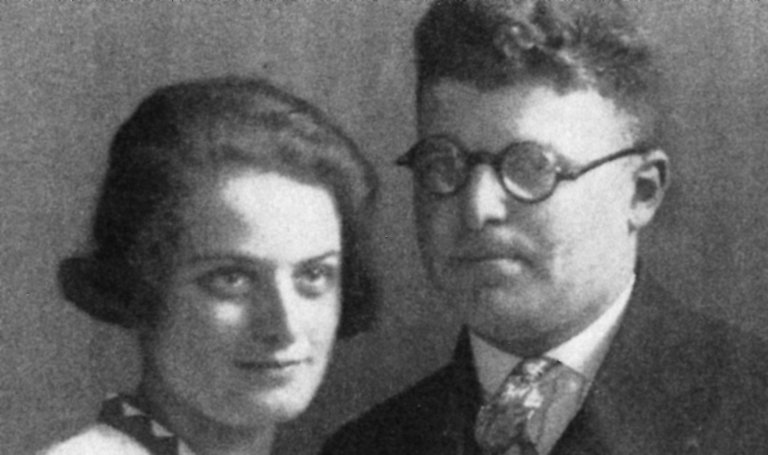 Ellen Bamberger (1904-1993) was the third child of Joseph and Josephine Bamberger after Anita (1899-1993) and Arno (1900-1984). Joseph (1867-1930), youngest son of David Bamberger from Mitwitz, ran a flourishing trade in basketry and raw materials in Lichtenfels - in fierce competition with the neighboring company of his older brother Phillip and his sons.
Ellen Bamberger (1904-1993) was the third child of Joseph and Josephine Bamberger after Anita (1899-1993) and Arno (1900-1984). Joseph (1867-1930), youngest son of David Bamberger from Mitwitz, ran a flourishing trade in basketry and raw materials in Lichtenfels - in fierce competition with the neighboring company of his older brother Phillip and his sons.
Alfred Marx (1903-1989) was born in Oberlangenstadt, the second son of Salomon and Johanna (called Hantchen) Marx. The family had been trading in hides and furs and butchery supplies for generations, Alfred learning the trade from his father.
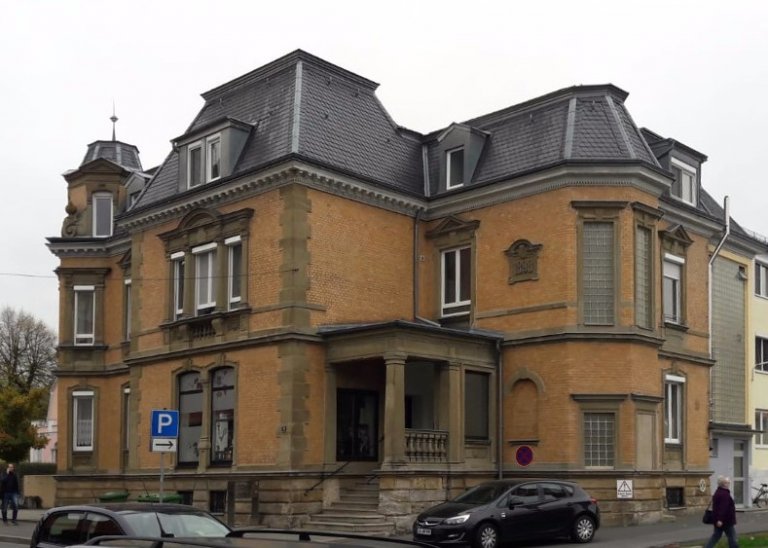
Ellen and Alfred married in November 1927. Their daughter Inge was born in 1930, and their daughter Hannelore was born in 1932.
In 1927, Alfred moved to Lichtenfels into his father-in-law's house on Bamberger Strasse ("Guthmann Villa"). After the death of his father in 1928, Alfred and his older brother Sigmund moved the family business and residence to Lichtenfels and registered the company "Marx & Bäumel GmbH" the following year. Both lived with their families and their mother in the prestigious property in Bamberger Strasse, which they also acquired after the death of Joseph Bamberger.

Letterhead 1938/9 - the deletion of "G.M.B.H." documents the dissolution of the business at the end of 1938.
Offers: Electric refrigerators and cooling equipment - salted and dry casings, butchery supplies and machinery. Fully automatic rapid scales - spices - store equipment - hides - skins - furs.
The company's offer shows its evolution from residual utilization of slaughter products to full customer service for butchers and from hides utilization to high quality fur products.
Financially, the family was doing well, but the increasing discrimination and harassment of Jews prompted Alfred Marx to travel to New York in 1937, where he inquired about future business opportunities. That same year, he made all possible arrangements for emigration.
One day, Inge saw a strange man drive by in the family Mercedes. She ran home to her father, who found that his car had simply been confiscated by the Nazis. The family's seventy-year-old business, Marx & Bäumel GmbH, was also dissolved in 1938.
During the "Reich Pogrom Night," non-Jewish tenants in the family home hid the children in the attic. Inge, with her eight years the oldest, had the task to keep the smaller children quiet. Meanwhile, the Nazis broke every window pane in the house, destroyed all the dishes and every piece of glass they could lay their hands on.
In the summer of 1939, Alfred provided his sister-in-law's family, the Oppenheimers, with several fur coats, which they planned to take with them along with other valuables when they emigrated and sell as a start-up aid after their escape. When this was discovered by the authorities, Alfred Marx had to leave the country in a hurry to avoid arrest by the GeStaPo.
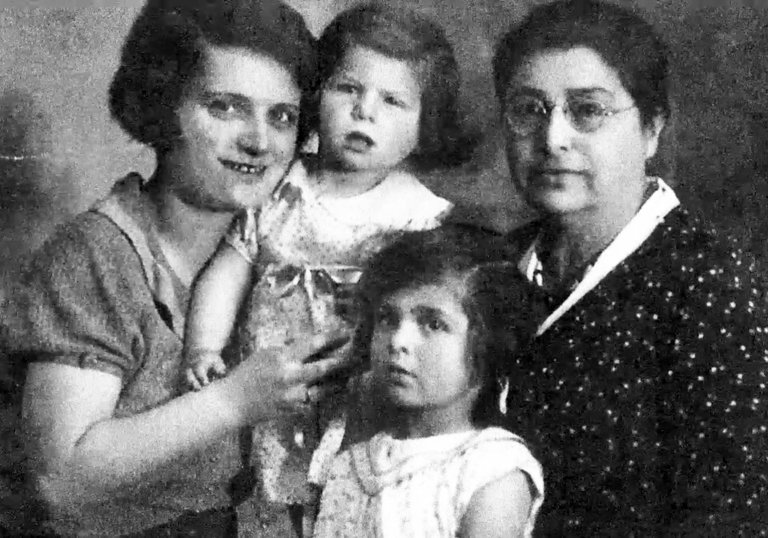
The female members of the family (Ellen, mother Johanna Marx, children) had enough time to pack up their possessions. Their personal possessions (except for valuables) were to be shipped to the USA, but were lost in Holland after the outbreak of war.
On August 30, 1939, the family was reunited in England. Inge and Hannelore went to school and were soon taken out of London with their class to a safer environment. While Alfred and Ellen, as well as the family of Alfred's brother Sigmund, remained in London, their daughters found shelter in the small village of Knebworth, Hertfordshire.
When their visas became valid, the family crossed to America on one of the last passenger ships. On April 17, 1940, they reached New York, where they were given a small apartment in Elmhurst, Queens.
Inge and Hannelore went to school. Alfred got a job in fur processing with the help of a relative, and Ellen found employment as a domestic helper. In 1946, both were granted U.S. citizenship.
The family adjusted to their new life, and their financial situation improved. Alfred successfully set up his own business in his old line of work and acquired American and European business partners (including the Lichtenfels "Striwa").
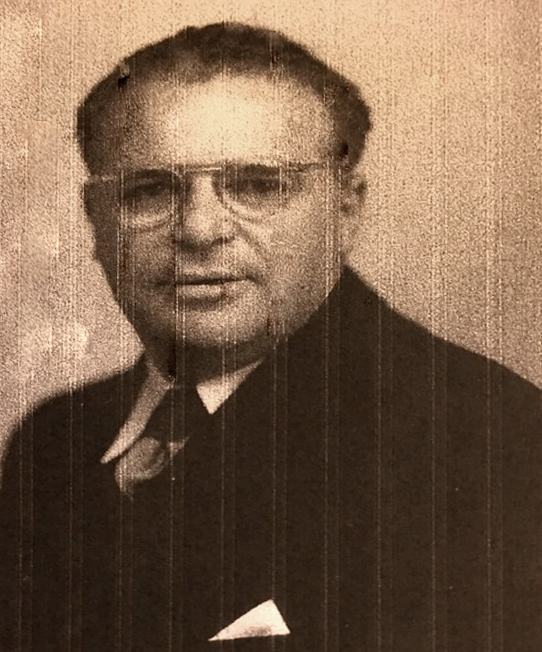
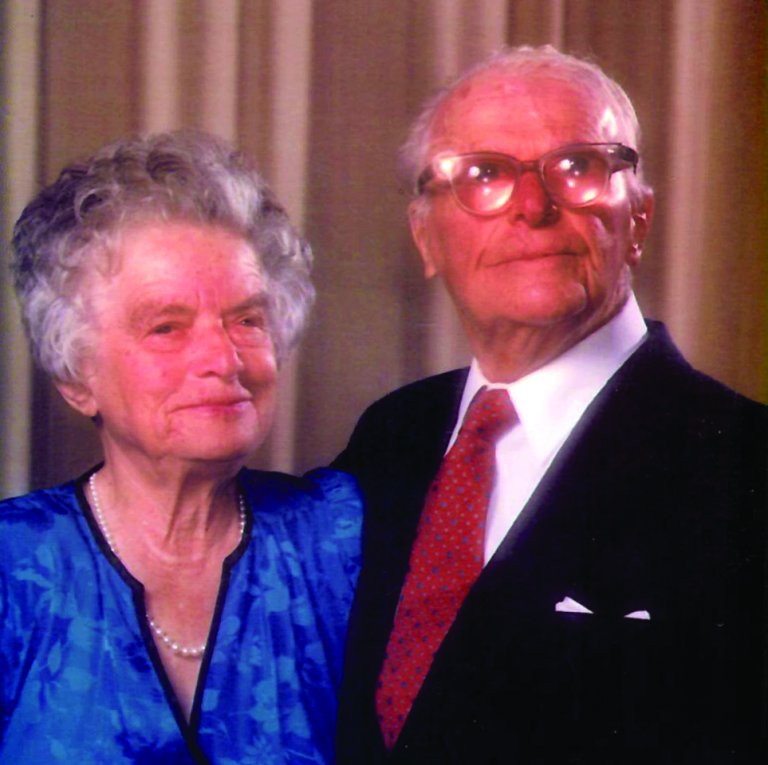
His success as an entrepreneur now enabled his family to live a carefree life. Inge and Hanna attended colleges. Alfred and Ellen spent the rest of their lives in New York, where they saw their daughters marry and raise children of their own.
Alfred died on May 11, 1989; his wife Ellen survived him by four years.



 Ellen Bamberger (1904-1993) was the third child of Joseph and Josephine Bamberger after Anita (1899-1993) and Arno (1900-1984). Joseph (1867-1930), youngest son of David Bamberger from Mitwitz, ran a flourishing trade in basketry and raw materials in Lichtenfels - in fierce competition with the neighboring company of his older brother Phillip and his sons.
Ellen Bamberger (1904-1993) was the third child of Joseph and Josephine Bamberger after Anita (1899-1993) and Arno (1900-1984). Joseph (1867-1930), youngest son of David Bamberger from Mitwitz, ran a flourishing trade in basketry and raw materials in Lichtenfels - in fierce competition with the neighboring company of his older brother Phillip and his sons.

